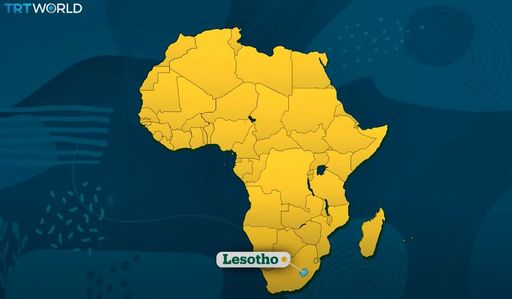When Limpho Lefalatsa first learned she had lost her job at a Lesotho garment factory after 12 years due to US President Donald Trump's decision to hit her tiny African homeland with a crippling tariff on its exports, she was in shock.
"I thought I was going insane. It made no sense," the 29-year-old said at her house in the capital Maseru. "When the truth started sinking in, I felt so helpless."
Lefalatsa's monthly factory wage of around 3,000 rand ($168) had supported herself, sent her 12-year-old daughter to school and paid for the blood pressure medicine her elderly grandmother needs to survive.
Now that income is gone, and she still does not understand why. She's not alone.
When Trump announced tariffs on imports for nearly all of the United States' trading partners in April, the Southern African mountain kingdom of Lesotho was singled out for the highest rate: 50 percent.
Lesotho officials were baffled, not least since their country, which Trump disparaged as a nation "nobody has ever heard of", was the poster child of a flagship US programme aimed at helping poor African economies develop through trade.
The Trump administration has defended the tariffs as reciprocal, saying that Lesotho charges 99 percent tariffs on US goods. Lesotho officials say they do not know how the White House arrived at that figure.
The US State Department did not immediately respond to a written request for comment.

'We must forget about producing for US'
Lesotho's textiles sector, its leading export industry, is heavily dependent upon the Africa Growth and Opportunities Act, a US trade initiative that offers qualifying African nations duty-free access to the US market.
On the back of that preferential tariff treatment, Lesotho developed a textiles sector that, until now, was the biggest private employer with some 40,000 jobs and accounted for roughly 90 percent of manufacturing exports, according to Oxford Economics.
Exports to the US under AGOA, including Levi’s and Wrangler jeans from a textile sector that largely employs women like Lefalatsa, make up a tenth of Lesotho's $2 billion gross domestic product.
That now looks set to disappear.
This week Lesotho declared a national state of disaster due to the "high rates of youth unemployment and job losses" caused by uncertainty surrounding the tariffs.
"You can see there are no people here," said Teboho Kobeli, owner of Afri-Expo, which makes jeans for export, gesturing towards rows of unmanned sewing machines at his factory.
While Trump suspended application of his tariff barrage for three months just days after his so-called "Liberation Day" announcement in order to give trading partners time to negotiate deals with Washington, in Lesotho the damage was already done.
The simple prospect of a 50 percent tariff caused many US importers to cancel orders, leading, in turn, to mass sector-wide layoffs. And what orders still exist now bear more risk than reward.
"Employers ... are just scared of taking more orders lest they plunge themselves into costs they are not ready to service," independent political and economic analyst Lefu Thaela told Reuters news agency.

'Think about other people'
The White House has yet to announce its final tariff on imports from Lesotho.
Trump's 90-day suspension was due to expire on Wednesday.
But factory owners like Kobeli, who has dismissed 200 workers from his US-focused production lines, fear the worst.
"If we still have these high tariffs, it means we must forget about producing for the U.S. and go as fast as we can ... (looking for) other available markets," he said.
A spokesperson for Lesotho's trade ministry declined to comment until the government receives official communication from the Trump administration.
However, others, like retrenched garment worker Nteboheleng Hlapane, have a message for the US president.
"I just pray to God that he touches your soul," said the 37-year-old, who can no longer afford the inhaler her son needs to treat his asthma.
"Think about other people ... They are suffering because of your selfishness, your cruelty."



















